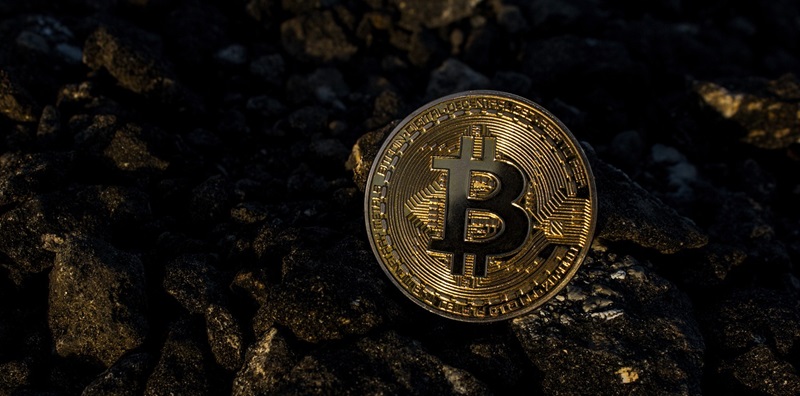When considering investments in cutting-edge fields like cryptocurrency, Europeans tend to be more cautious than their American counterparts. The desire for financial security is deeply embedded in European culture, often leading investors to steer clear of investments with a high degree of volatility. On the other hand, Americans have demonstrated a willingness to embrace high-risk investment opportunities, such as those offered by Bitcoin ETFs, within their financial portfolios.
This propensity for caution among Europeans is not just limited to individual investors but extends to major financial institutions as well, which are typically more hesitant to dive into cryptocurrency investments. This contrast in risk-taking is significant, as it reflects broader cultural attitudes towards financial investments and stability. In essence, Americans appear more open to the potential rewards and risks associated with the crypto market, whereas Europeans prioritize a more measured, security-focused approach to investing.
Impact of Regulatory Frameworks on Investment Choices
European investors exercise caution, partly due to the stringent UCITS (Undertakings for Collective Investment in Transferable Securities) directive that governs retail investment funds across Europe. This directive insists on diversified portfolios, complicating direct investments in single cryptocurrencies like Bitcoin. Unlike the US, where spot Bitcoin ETFs are gaining popularity, such singular asset-focused funds don’t align with UCITS regulations. This tight regulatory environment restricts the available cryptocurrency investment options for Europeans, prompting a shift toward products that meet these diversification requirements. As the European market adapts, investors are seeking out crypto investment opportunities that conform to this regulatory framework, ensuring they have a balanced investment mix while still allowing them to engage with the emerging asset class of cryptocurrencies.
The VanEck Europe Strategy: ETPs and Diversified ETFs
Embracing Exchange Traded Products (ETPs)
Adhering to regulatory demands, VanEck Europe shifted its focus to Exchange Traded Products like Exchange Traded Notes (ETNs) to cater to European investors desiring cryptocurrency involvement compliant with legal standards. ETNs mimic the tradability of Exchange Traded Funds (ETFs) while being categorized as debt. VanEck offers an innovative Bitcoin ETN that backs its value with real Bitcoin assets, securely stored offline. This strategy showcases VanEck’s forward-thinking approach, providing a regulated, transparent path for investment in digital currencies without direct ownership while maintaining easy trading and accurate pricing mechanisms. Their Bitcoin ETN is particularly notable for its backing by actual Bitcoin, ensuring that investors have a stake in the cryptocurrency’s performance coupled with the safety of cold storage. VanEck’s commitment to regulatory compliance and innovation in financial products meets the growing European interest in cryptocurrency investments effectively.
The Crypto and Blockchain Innovators UCITS ETF
VanEck Europe offers a unique way for investors to engage with the burgeoning digital currency market through its Crypto and Blockchain Innovators UCITS ETF, known as DAPP. This investment vehicle is crafted to align with European investment norms and caters to investors interested in tapping into the crypto and blockchain domain. The ETF’s portfolio includes companies deeply intertwined with the cryptocurrency world, from mining operations to firms like MicroStrategy that hold significant Bitcoin assets. To be part of DAPP, companies must either generate a substantial portion of their earnings from cryptocurrency endeavors or hold a large cryptocurrency portfolio. This strategic focus ensures that investors have exposure to a broad spectrum of the crypto ecosystem within a regulated framework, offering a balance between innovation and compliance.
Generational Perspectives on Crypto Investments
The Boomer Approach to Cryptocurrency
Generational differences are sharp when it comes to the world of cryptocurrencies. Older generations, particularly the baby boomers, approach digital currencies with notable caution. Their concerns are primarily centered on the risks associated with the security of cryptocurrencies and the intricacies involved in managing them independently. Boomers tend to lean toward more conventional investment channels, seeking the solidity and comfort of well-established financial entities. They are less eager to directly manage their crypto assets, often deterred by the potential volatility and unfamiliarity of this investment class. However, despite their reservations, some are cautiously curious about the integration of crypto into traditional finance, perhaps signaling a slow shift in attitudes as the technology matures and becomes more intertwined with familiar systems.
The Move Towards Intermediated Crypto Exposure
To meet the needs of conservative investors, financial institutions are developing new products that provide crypto market access without requiring direct asset management. These offerings appeal to those who see potential in digital currencies but are hesitant due to perceived risks like security and regulatory concerns. By removing the need for investors to personally hold cryptocurrencies, these products serve as a bridge, integrating the novel asset class into a more conventional, regulated investment landscape. This strategy broadens the investor base, allowing those who might otherwise be deterred by the complexities of cryptocurrencies to gain exposure to this emerging market. It represents a key innovation in financial services, fusing the dynamism of digital assets with the stability sought by more traditional investors.
Summary of European Trends in Crypto Investment
Europe is progressing steadily in the cryptocurrency domain, striking a balance between innovation and caution. The continent’s strict regulatory framework and a culture that traditionally leans toward risk aversion influence its investment patterns, notably a fondness for regulated and diversified investment options. Financial institutions have been instrumental in this adaptation, creating cryptocurrency products that align with European market preferences and regulatory norms. These offerings are crafted to appeal to investors seeking the transformative prospects of digital assets without straying too far from the regulated, familiar ground. Thus, Europe is showcasing a measured, yet forward-moving approach to the incorporation of cryptocurrencies into its financial landscape, reflecting a market that is both prudent and open to the possibilities of this emerging sector.

